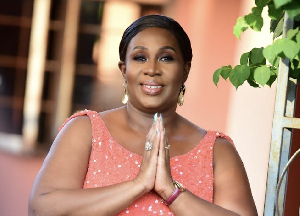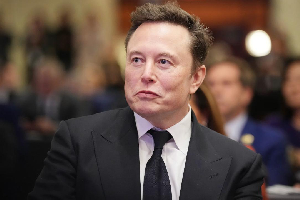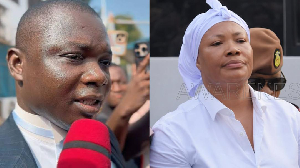Since the beginning of this week, social media and the traditional media have been inundated with varying, contradictory responses to two brilliant students whose admission to Achimota secondary school has suffered a shipwreck.
The impasse is over the extent to which schools – basic and secondary – can creatively bend their rules to integrate, assimilate, and accommodate the beliefs of students. It is also about how malleable beliefs and practices could be.
Given the spiritedness of the debate – verged on confirmation biases – it is now very clear that there is a progressive cultural shift in hair mattering. This seismic cultural climate change demands important consideration.
It is obvious that we are locked in a quagmire that invites critical evaluation of our rules and administrative procedures.
As we consider an important approach to dealing with the issue, we need to be mindful of the fact that these are brilliant children, who like any Ghanaian child, must have "unimpeded" access to education.
But at the same time, we are in a transfix as we sift through what is permissive and what is not. Definitely, society is made up of people with varying beliefs and practices.
For society to run smoothly, common grounds are developed over time to harmonize the behaviours of members of society. This gets canonized through socialization – including education.
This brings the dialectic relationship between culture and people into sharp focus. Humans are creatures of culture, while culture is a product of humans. Can cultures change, can society change? To what extent can that happen?
In the end, humans are neither society's being nor self-sufficient. Humans are creative and dynamic with the ability to subsist in multiple dissonances. This means that of all creation, it is humans who can adapt and adopt to changing situations. The means of articulating this is through the use of language. Language helps humans to subsist in the three dimensions of time simultaneously.
As l have laid the foundation, let me consider a few questions, as we look for answers. I ask these questions because questions are more important than answers. This is premised on the need to prioritize "why" over "how". Given this approach, I take inspiration from the German Philosopher, Friedrich Nietzsche, who said, “He who has why to live can bear almost anyhow.”
First, to what extent can the school authorities of Achimota and many other schools foster school culture if rules are highly discursive?
Second, given that a uniform culture must govern any institution - where people are trained - what will be the implications if rules are not uniform?
Third, what values or source of values must be used in administering a "secular" institution - since an institution must definitely be oriented towards shared values?
Fourth, to what extent must freedom of religion be allowed in an environment that is religiously plural?
Fifth, can there be a compromise and who should compromise - the school or parents? The jinx can be broken only if one party compromises their stance.
Sixth, is religion, like school rules, fossilized? In other words, can religious people adapt their beliefs to changing situations? Take the case of how all the religions in Ghana had to invest versatility to adapt to the coronavirus pandemic.
Seventh, in what ways can the school authorities and Rastafarians sift their rules and beliefs to determine what is essential and what is not? What will the school lose if dreadlocks are accepted? And what will be the salvific or mortal effect if the students temporarily cut their dreadlocks?
Eighth, if Achimota and other schools relax the rule, what will be the multiple effects of that in terms of other professions like law and medicine? We cannot assume that children of Rastafarians have an aversion to these practices.
Ninth, does Ghana allows negative religious freedom - belief and practice as one pleases? Currently, it appears the law against the recreational or ritual use of marijuana will weigh in against Reasoning - an important ritual among Rastafarians that involves the consumption of marijuana?
While not all Rastafarians consume marijuana, it does not take away the fact that the ritual is central to the "religion".
Tenth, in the face of globalization, cosmopolitanism, transnational citizenship, what values should shape the public sphere?
Finally, since Ghana declared 2019 as "The Year of Return", how prepared is the country to accommodate values that are uncommon to most Ghanaians?
However we answer the above questions, we should understand that the boys and parents are human beings who have emotions. We should consider the trauma they are experiencing!
We need to also take into consideration that given the challenges besetting our country, we need every brain and brawn. But we also need to fashion and model our rules to reflect important landmarks in our nation's history. We also must apply wisdom, tact, and dialogue, and more so, compassion when dealing with sensitive issues like religion, politics, and sports.
The educational system needs a totalizing reform to make the Ghanaian child competitive without losing out on Ghanaian sui generis!
I end with an important insight K.A. Busia shed in his book, “The Challenge of Africa” on the dialectic relationship between culture and change as follows: “There is no society so custom-bound that its culture does not change, and there is none so changeful as to have no cake of custom”.
To find a balance, we need wisdom, tact, dialogue, and compassion rather than condemnation.
Satyagraha
Prempeh Charles (prempehgideon@yahoo.com), African University College of Communications, Accra
Opinions of Friday, 26 March 2021
Columnist: Charles Prempeh
My take on dreadlocks and education: Questions for consideration
Opinions














